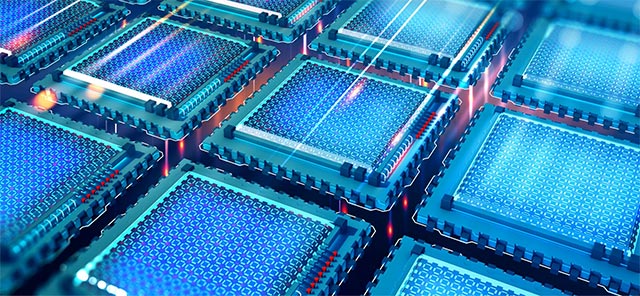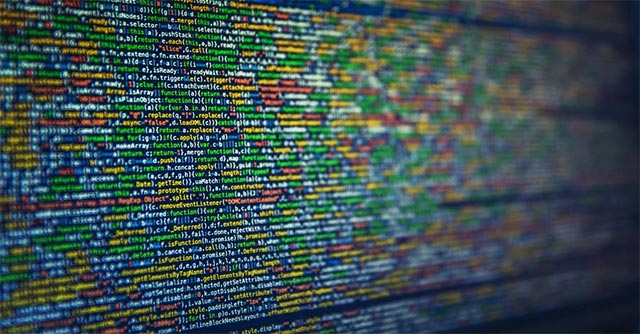Quantum computing - a marathon, not a sprint contest!
If you are interested in the technology world, often 'wandering' on many major international technology forums, you've probably met the phrase Next Big Thing - referring to quantum computing technology (quantum computing ). In January this year, the famous USA Today newspaper announced the launch of IBM's new quantum computer system as one of the four most notable highlights at CES 2019 - the largest annual technology event. World held in Las Vegas. In addition, Gartner also lists quantum computing as one of the leading technology trends for 2019, alongside other areas of great interest for all humanity such as blockchain and virtual reality. These simple examples show that quantum computing will be one of the areas that greatly influence the future of the technology world.

- Quantum computing - the future of humanity
A person who has spent more than 25 years in the field of quantum computer physics - machines for storing and processing information based on individual atoms or nuclei, such as photons - co-founder and CEO by IonQ, a startup company of quantum computing, Christopher Monroe Professor of Physics, has a strong belief that quantum computing will in fact become a breakthrough technology that can create solutions. The best is to solve some extremely difficult problems in the essential areas of life such as transportation, computer security, health, and some other areas that we have not known before. - issues that technology cannot reach today.
However, according to Professor Monroe, we should still have a clear grasp of what is going on and what will happen next so that we can manage and implement it in the most effective way. Important discoveries about quantum computing are likely to have a great impact on many aspects of society, but for the time being it is still a matter of the future. At the present time, we will still see rapid growth, broken records in the world of quantum computing. These incremental advances are very important for governments - organizations that play a huge role in encouraging research in this area, as well as for industries in need to begin to focus on how consciousness of using quantum computers as this technology becomes more and more powerful. However, too much hype threatens to lead the so-called "disillusionment", which in turn can slow the progress of quantum computing.

- Intel challenged IBM and Google with supercomputers with 250 times cooler temperatures than the universe
The first and most basic thing you need to know about quantum computers is that they are not really faster, better, or more powerful versions of the computers we have at the moment. in. Quantum computers are not aimed at such personalization. Therefore, please temporarily dismiss the intention of owning quantum version laptops or smartphones! In addition, quantum computers will almost certainly not be used to operate social networking systems, screen Pixar movies, or manage an airport reservation system, which will be used. to solve various macro issues in different ways.
To clarify the above problem, a bit of quantum computing technology should first be recalled. Quantum computer technology was first proposed to be developed in 1982 by the Nobel Prize-winning physicist Richard Feynman. Richard Feynman worries that conventional computers are never capable of solving complex problems in quantum mechanics - a theory used to predict the behavior of small isolated elements like atomic particles or electrons. Today, we use conventional computers to simulate the quantum model of material and chemical processes, but these simulations are often delayed when faced with all possible electron arrangements. appears in a small molecule or block of material.

- Microsoft developed a new programming language for quantum computers
Feynman's idea is simple, to build a computer system that stores information about individual particles - later named qubits - following the rules of quantum mechanics (secondary makes it difficult for normal computers).
So what's the difference here? Ordinary computers work with certain data, digitizing every aspect of the problem it encounters into well-defined numbers. Meanwhile, quantum computers will explore all possibilities, constantly updating the probability of many different scenarios in the same problem. In other words, quantum computers have different hardware from digital computers based on transistors in that while digital computers require data to be encoded in binary digits (bits), but Each number is assigned to one of two certain states (0 or 1), then quantum computing uses qubits (quantum bits) that can be in a state of quantum convolution. By adding more qubits, the quantum computer itself can consider many more exponential scenarios. A quantum computer will be programmed to consider all these capabilities and at the same time analyze, select, and then narrow them down to just a few scenarios. Next, when the output data is analyzed, it can give us information about all those scenarios. It is important that a quantum computer will not be evaluated or accessible while it is considering the countless number of possible scenarios. For this reason, it can be compared that qubits are like senators before a controversial vote: They will not disclose their position until they are forced to do so.

- Even Bill Gates doesn't understand the algorithm behind quantum computing
Our world is full of uncertainty and quantum computers will be very helpful in finding the best option in a set of possible options. Therefore, a bank will not be able to use quantum computers to track account checks, because when you look at the balance in your account, you want a single and most accurate answer. . But banks can use quantum computers to estimate the amount of money you will have in your account after a year from the current time, based on the probability that you will get a raise or fall. Discharge, or may also be based on the probability of a health risk resulting from medical expenses, or stock market anomalies - factors that may affect your financial situation - already then calculate how these elements interact with each other.
In fact, no one has ever written a program to make financial forecasts on a quantum computer. The biggest reason is that so far, there has not been a complete quantum computer to try to operate them. But after a lot of effort, that has gradually changed. Over the past few years, business groups, academic researchers, and the government have been making constant efforts and initially creating machines that can isolate and control quantum particles or other qubits. each other, good enough to handle basic programs.
To isolate and control qubits requires quantum computer systems to be highly accurate and withstand harsh conditions. Some quantum computers can freeze solid state circuits near zero. While others use electric fields to launch atoms in a vacuum, then use lasers to control them with an accuracy of 1 / 10,000 of the thickness of a human hair. These atomic qubits are particularly able to expand into much larger systems because they all originate from the same isolated, perfectly reproducible atomic element. And at the same time they are so isolated that they can never reveal their qubit state until they are forced.

- Google announced the most powerful 72-qubit Bristlecone quantum chip at the moment
Within 3-5 years, these quantum computers will be able to perform certain calculations that cannot be used on conventional computer systems. However, it can take 5-10 years for any of these systems to achieve the necessary capabilities and accuracy to solve problems in a useful manner as well as to maximize efficiency. With such a long and arduous path, the most worrying thing is that some people who are studying or are interested in quantum computing will not be able to keep their passion, feel disappointed and gradually lost interest. This can become a disaster for the development of quantum computing, and our mission is not to let it happen. Governments should continue to maintain stronger and stronger support for basic research in this area. The US Congress just passed the National Quantum Initiative Act last year, which is very encouraging. In addition, the community of businesses operating in this area should also begin to become familiar with the current generation of quantum computers, so that they can develop know-how and software systems that give advantages to they when the quantum computing technology gradually improved, and more importantly, to not lag behind.

- Getting the light to stop, an important step to making quantum computers
In the future, even if it is impossible to realize the dream of owning a quantum computer on a desk, or a quantum smartphone in a pocket, you will certainly be able to see the appearance of more effective prescriptions, more flexible materials, or more efficient organizations . In short, self-computing will make a great contribution to the development of humanity. Developing quantum computing is a marathon, where the toughest and knowledgeable way of allocating power is the winner, and this effort will be worth it.
You should read it
- ★ What is quantum computing and how did people develop this technology?
- ★ New chip technology can enhance quantum computing
- ★ Even Bill Gates doesn't understand the algorithm behind quantum computing
- ★ Quantum computing will become Amazon's key business service
- ★ Google achieves new achievements in quantum computing with the 53-qubit Sycamore chip